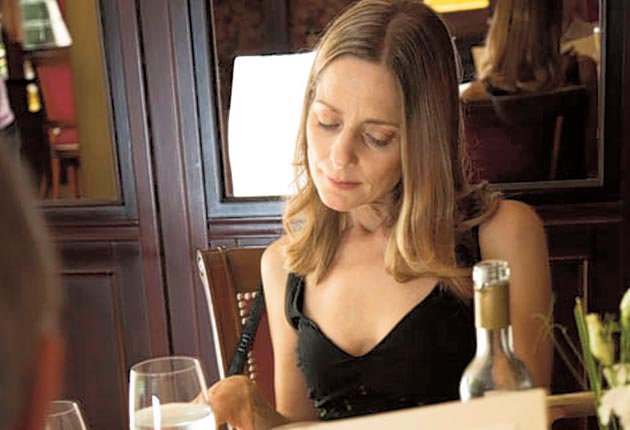For fresh read frozen: false claims made by restaurants revealed

Your support helps us to tell the story
From reproductive rights to climate change to Big Tech, The Independent is on the ground when the story is developing. Whether it's investigating the financials of Elon Musk's pro-Trump PAC or producing our latest documentary, 'The A Word', which shines a light on the American women fighting for reproductive rights, we know how important it is to parse out the facts from the messaging.
At such a critical moment in US history, we need reporters on the ground. Your donation allows us to keep sending journalists to speak to both sides of the story.
The Independent is trusted by Americans across the entire political spectrum. And unlike many other quality news outlets, we choose not to lock Americans out of our reporting and analysis with paywalls. We believe quality journalism should be available to everyone, paid for by those who can afford it.
Your support makes all the difference.Modern restaurants exult in parading the provenance of "pan-fried, line-caught seabass", "wild-foraged oyster mushrooms" and other elaborate or homely ingredients, but a swoop by trading standards officers has revealed that many of the descriptions are false.
Three-quarters of restaurant, pub and cafe menus were found to be making bogus claims for "fresh", "local" or "hand-made" dishes which turned out to be cheaper versions using factory farmed meat, frozen fish or cash and carry food.
Among the scams were "handmade" tarts bought from a wholesaler, defrosted "fresh mussels" and "fresh tuna steak", a "home-made" soup made from a dry-pack mix and "local" samphire vegetables imported from 2,000 miles away in Israel.
The investigation took place this summer amid concern that fraud – which can include marketing ordinary olive oil as "extra virgin" or substituting Vietnamese catfish for cod – has tainted 10 per cent of the UK food system. Trading standards officers from Lancashire County Council visited 41 randomly selected outlets, scrutinised the menu, checked food stores and invoices and found that 32 had been misleading diners. Of 816 dishes, one in seven – 127 – was incorrect or could not be proved by the business. Some 60 per cent of claims at one establishment could not be verified.
Many of the unscrupulous claims related to ordinary or catering food being passed off as artisanal: a "home-made" tart bought from a national wholesaler, "home-made" soup that was dry-pack soup mix with hot water added, "smoked" chicken breast that was not smoked, or even smoked flavoured, and "fire-roasted" vegetables cooked in an ordinary oven.
Other claims purported to supply local premium produce, such as "Ribble Valley" beef that actually came from Merseyside, and "Morecambe Bay" shrimps caught in the much wider north-east and north-west Atlantic.
Freshness was a common scam: "Fresh mussels" and "fresh tuna steak" came from the freezer and "freshly made" meatballs from a wholesaler.
Some caterers sought to mislead diners over farm standards, using caged eggs for dishes ostensibly containing "free-range eggs" and ordinary apple for "British Farm Assured" apple pie.
"Wild mushroom" came from a farm and other descriptions such as "organic" and "hand-picked" were applied to foods without justification.
Trading standards officers warned the restaurants, pubs and cafes that they faced prosecution if they were still misleading customers in follow-up checks.
Jim Potts, Lancashire's chief trading standards officer, said people had the "right to expect that the meals they buy are genuinely described on the menus and price lists.
"The popularity of TV food programmes and celebrity chefs may be leading to 'over-egging' of menu descriptions but all items must be truthfully described," he said.
"There is nothing wrong with the food itself, and many customers would consider the meals on offer to be tasty. But when you order something it must be exactly as described. Mass-produced cake bought in a box from a supermarket cannot simply be cut into portions and described as 'home-made'."
Mind what you're ordering
Organic meat
Organic meat is ripe for abuse because factory-farmed produce is much cheaper and most diners can't tell the difference. Occasionally butchers have been prosecuted, but the most well-known court case was four years ago when Julie's, the celebrity restaurant in Holland Park, London, was fined £11,500 for selling bogus "organic" sausages, roast chicken and lamb.
Battered cod
With cod stocks low, fish and chip shops have been using cheaper white fish. In Dublin this year a study found a quarter of "cod" and "haddock" was pollack, whiting or saithe. UK trading standards have also caught chippies selling Vietnamese catfish.
Olive oil
Merchants pass off ordinary oil as the foodie's favourite drizzle: extra virgin. Other cheap substitutes are soybean and rapeseed oils.
Join our commenting forum
Join thought-provoking conversations, follow other Independent readers and see their replies
Comments